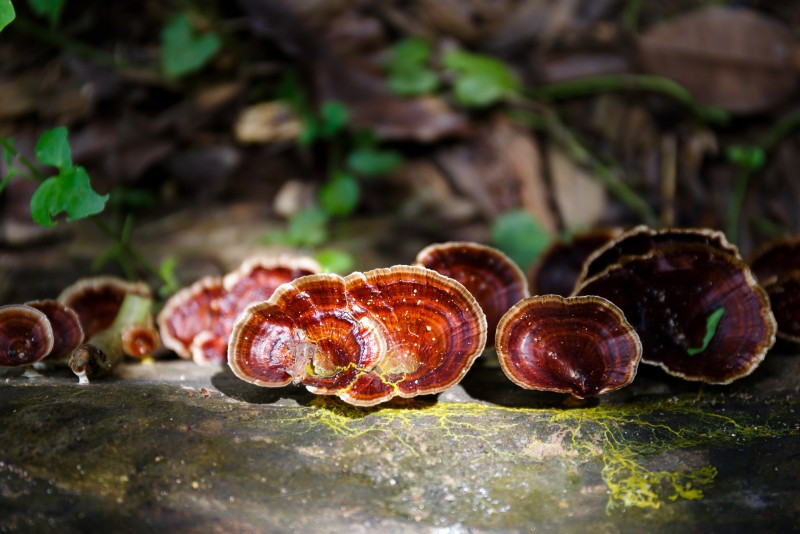The reishi mushroom is a species of mushroom known for its medicinal benefits. Here, we take a brief look at the long traditional background of reishi and discuss some of the most clinically supported and renowned benefits of reishi mushrooms.
The Background on Reishi Mushrooms
The reishi mushroom, scientifically known as ganoderma lucidum, has a long history of use in traditional Chinese medicine. Reishi mushrooms are historically
known in China as lingzhi. There, they were sought after for their medicinal use, and treasured for their scarcity. Wild reishi mushrooms have been found throughout the world, but they were not cultivated until the 1970s in Japan.
The historical reputation of reishi is as an elixir of life because it is historically regarded as providing
vitality and longevity. Scientific study has come to support the many potential benefits of reishi mushrooms, which are discussed in more detail below. Reishi contains a wide range of beneficial compounds. Among other things, reishi is now known for its anti-inflammatory, relaxant, and immune-enhancing properties.
The Benefits of Supplementing with Reishi
Reishi mushrooms have been found to have
more than 500 natural compounds that can play a role in providing health-related benefits. It stands to reason, then, that a reishi mushroom supplement is perhaps the best form in which to get the benefits of this powerful, healthful mushroom.
Antioxidant properties in reishi can help
neutralize free radicals that contribute to premature aging. Reishi also contributes to healthy immune system functioning and blood vessel health, which in turn contribute to healthy aging. In other words, reishi truly can be regarded as life-giving.
Supporting a healthy liver: Reishi mushrooms can help improve
liver function and prevent liver disease. A primary function of the liver is to eliminate toxins and bacteria from the body, and reishi supports this function. Reishi also has antioxidant properties that can combat harmful immune responses that contribute to liver injury.
Anti-inflammatory properties: The anti-inflammatory properties of reishi mushrooms make it useful for combating inflammation in a general sense. Various disorders associated with
inflammation can be combated by ingesting reishi in supplemental form. These unfavorable conditions include arthritis, gout, and some cognitive disorders.
Stabilizing blood sugar: There is evidence that reishi might help lower blood sugar, as well as
lower insulin. These attributes make reishi potentially helpful to diabetics by helping to prevent adverse events related to diabetes. Properties of reishi also enable it to regulate enzymes related to blood sugar control.
Mitigating fatigue is another potential benefit of reishi. Stress contributes to fatigue. Reishi is an
adaptogen, meaning that it helps mitigate stress, and thereby reduce fatigue.
Protecting against infection: Finally, reishi can
prevent infection. This is due to the variety of antiviral, antibacterial, and antifungal properties of the compounds in reishi.
The many potential benefits of the reishi mushroom make it very powerful. A reishi supplement is a great way to get these benefits. It is recommended that you talk to your healthcare provider before taking a reishi supplement for the first time.

